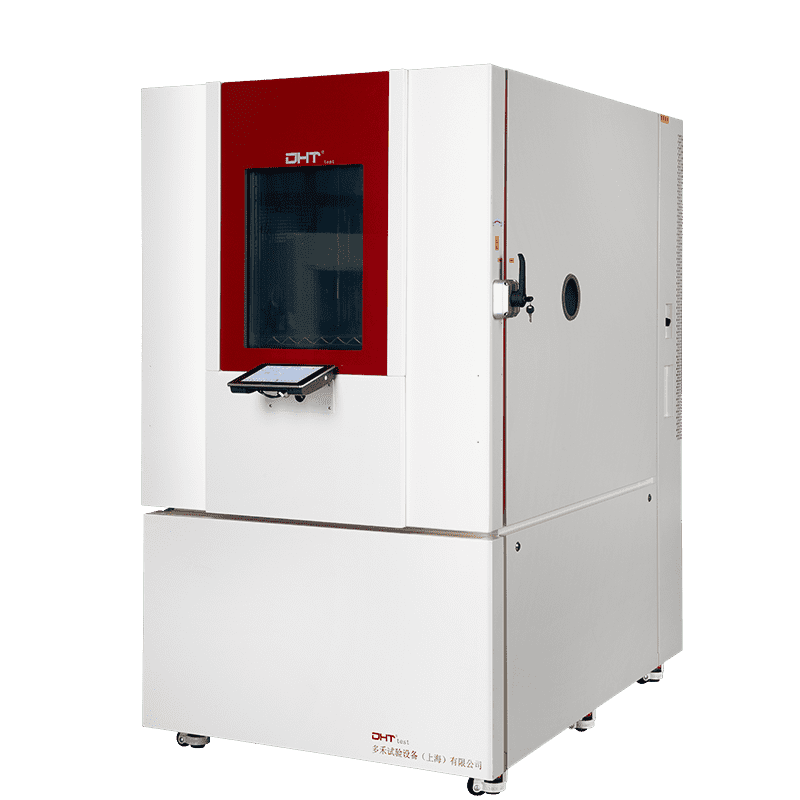Written by Shirley
Product Manager, Doaho Test (DHT®)
In advanced manufacturing sectors such as aerospace, new energy vehicles, semiconductors, and materials science, walk-in test chambers—also known as drive-in chambers—play a vital role in ensuring product reliability, accelerating R&D timelines, and mitigating quality risks. These large-scale environmental systems are engineered to simulate complex test conditions like thermal cycling, high-humidity exposure, and salt spray corrosion. They’re essential for evaluating the environmental adaptability of large components, assemblies, or complete systems.
However, walk-in chambers are highly customized, complex systems. Choosing the wrong manufacturer can lead to poor test performance, frequent breakdowns, inflated maintenance costs, and operational instability. So how do you make the right choice? The following five criteria can help you evaluate suppliers professionally and make informed, long-term procurement decisions.
1. Technical Capabilities: The Foundation of Performance
The true value of a walk-in chamber lies in its ability to precisely and consistently simulate real-world environmental conditions. This depends largely on the manufacturer’s engineering and integration capabilities.
Key indicators to assess:
-
Control System Architecture: Does the supplier offer a proprietary environmental control system? Is it powered by independent algorithms and closed-loop regulation? For example, DHT® walk-in test chambers feature the DHSPLCON™ intelligent control system, providing precise control to ±0.5°C and ±3%RH, with remote monitoring and data export capabilities.
-
Temperature Change Rates & Stability: Can the chamber support wide temperature ranges (−70°C to +150°C)? Is it capable of rapid thermal ramp rates (≥10°C/min) with minimal overshoot and high stability?
-
Uniformity & Airflow Design: Is the chamber’s airflow path optimized via CFD simulation? Can the supplier provide test reports conforming to standards like GB/T 10592 or IEC 60068?
-
Modular System Design: Can the chamber be expanded or upgraded in the future—for instance, by adding new test sections, zoning temperature areas, or enhancing functional modules?
Pro tip: Ask for real-world application data, system interface demos, or arrange a site visit to an existing installation to judge technical maturity first-hand.
2. Industry-Specific Experience: Practical Relevance Matters
Walk-in chambers are not one-size-fits-all solutions. Each industry presents unique technical challenges, from structural design to contamination control.
Key questions to ask:
-
Has the supplier delivered similar systems to your industry? Are they experienced in aerospace R&D, full-vehicle testing, semiconductor cleanrooms, or material aging applications?
-
Can they provide industry-specific customizations—like drive-in ramps for vehicles, reinforced floors, cleanroom-compatible materials, corrosion-resistant interiors, or integrated interfaces for vibration or EMC testing?
-
Do they offer engineering consultation during the pre-sales phase? Can they assist with system configuration, layout planning, or test methodology design?
DHT®, for instance, has supplied custom-engineered walk-in chambers to aerospace research institutes, EV manufacturers, and chip fabs. Their solutions include tailored door layouts, multi-zone airflow designs, and compatibility with cross-platform testing systems—offering users a fully scenario-specific testing environment.
3. Production & Delivery Capability: Managing Timelines & Risk
Due to the complexity of their structure and subsystems—sheet metal, refrigeration, electrical integration, and software control—walk-in chambers typically require a long lead time.
Look for:
-
In-House Manufacturing: Does the supplier operate their own plant? Do they control key production steps such as sheet metal processing, coating, electrical assembly, and refrigeration system installation?
-
Modular Inventory & Scalability: Do they maintain stock of standard modules and components for faster turnaround?
-
Project Management Strength: Is there a dedicated team managing the full lifecycle—from system design to onsite installation?
-
Testing & Commissioning Procedures: Do they offer comprehensive factory acceptance testing (FAT) or onsite acceptance testing (SAT) before handover?
Manufacturers like DHT® offer vertically integrated production and a standardized delivery process to reduce lead time and mitigate project risks.
4. After-Sales Support: Ensuring Long-Term Stability
A walk-in chamber is a capital investment with a typical service life exceeding 10 years. Long-term uptime depends on robust service infrastructure.
What to evaluate:
-
Localized Support: Does the supplier have service centers or local engineers available in your region?
-
Warranty Coverage: Are key components like compressors and control units backed by a minimum 1-year warranty?
-
Training & Maintenance Programs: Are users trained in operation and routine care? Is there a clear preventive maintenance schedule?
-
Remote Diagnostics: Does the system offer online condition monitoring and predictive alerts to preempt failures?
Every DHT® walk-in chamber supports remote technical service, preventive care programs, and includes comprehensive operation manuals and training resources to help customers maximize performance.
5. Certifications & Reputation: The Foundation of Trust
In a crowded market, brand credibility and third-party recognition can be key differentiators.
Critical areas to check:
-
Has the company earned certifications like ISO 9001, CE, RoHS, or UL?
-
Do they participate in industry organizations or contribute to national/international testing standards?
-
Do they hold core patents or proprietary software rights in environmental simulation?
-
Are their clients recognized leaders—e.g., aerospace institutes, research universities, or Fortune 500 enterprises?
-
Do they have a proven track record of international exports and compliant global after-sales networks?
DHT® has built a strong reputation over the years by delivering advanced, custom environmental testing systems to global high-tech customers. Their international service network and industry-recognized reliability make them a trusted partner for mission-critical testing.
Conclusion: The Right Manufacturer Is a Strategic Asset
Buying a walk-in test chamber isn’t just purchasing equipment—it’s entering into a long-term partnership. Your supplier’s design expertise, delivery capability, technical support, industry understanding, and brand integrity will all impact your ability to test with precision, develop products faster, and reduce operational risk.
For organizations that prioritize precision, uptime, and data integrity, DHT® walk-in test chambers stand out not only for their performance, but also for their industry-fit customization and lifetime support. Choosing the right manufacturer today is the foundation for a decade of test reliability tomorrow.


